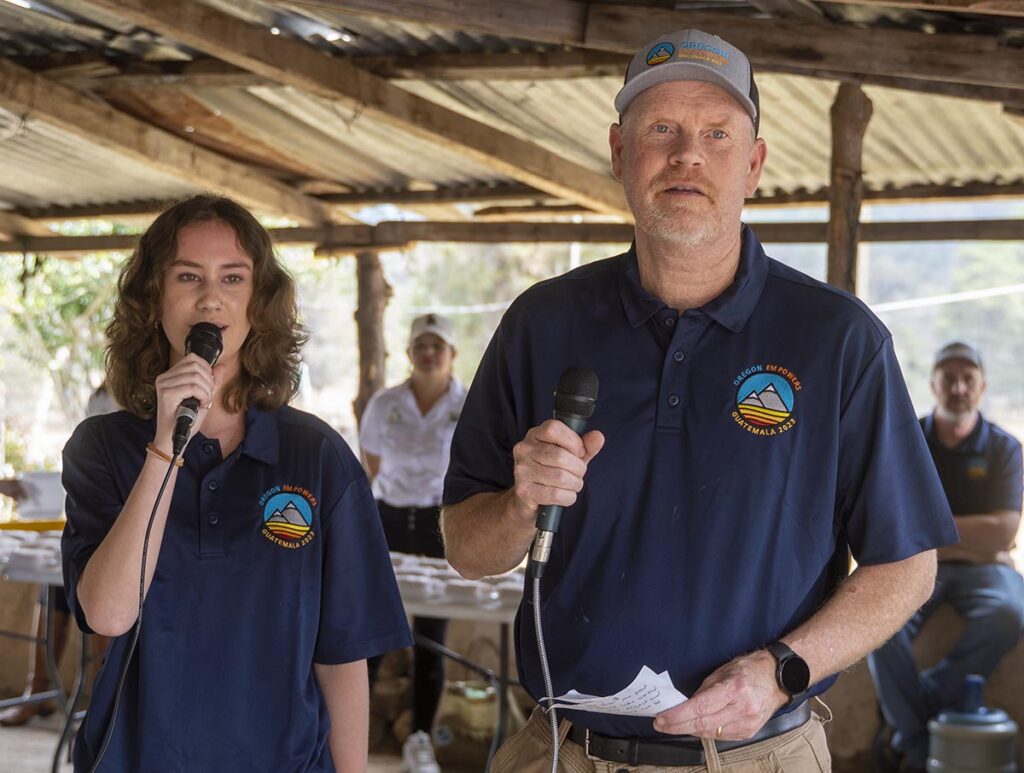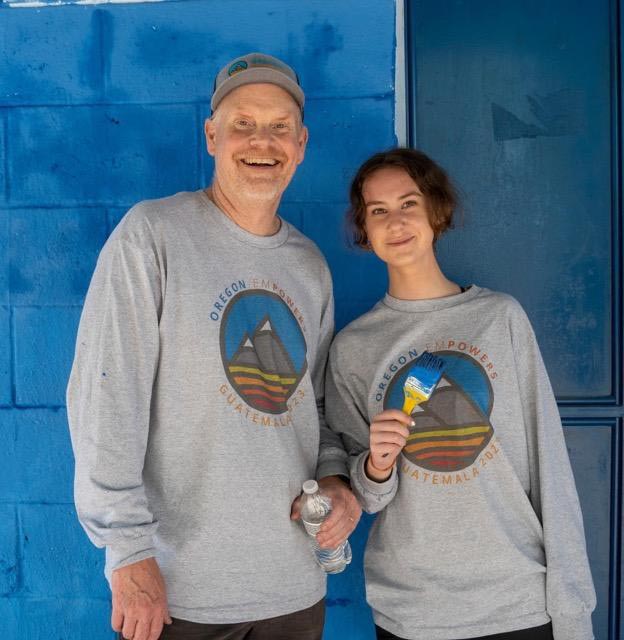
For Ted Case, executive director of the Oregon Rural Electric Cooperative Association, a recent NRECA International volunteer trip to Guatemala with his 17-year-old, Malia, became a father-daughter bonding trip to remember forever.
The pair were part of a team of Oregon electric co-op lineworkers and goodwill ambassadors who brought electricity to the small village of Ventura—a “forgotten valley” of subsistence farmers and their families living in about 40 homes with dirt floors in the shadow of a volcano.
“It really just reinforces how much we have here in America,” said Malia, who is fluent in Spanish and served as a translator for the team on their March trip, which was organized by Senior Program Manager Ingrid Hunsicker of NRECA International.
“It really helped to be able to use my Spanish in ways that helped other people. If there’s any opportunity to do this again with NRECA International or anyone else, I will definitely take it.”

The Cases arrived in Guatemala during the final stretch of the three-week electrification project to help perform some extra community service work, including painting the local school in the blue and white colors of the Guatemalan flag and installing donated basketball hoops and a swing set on the playground.
“Some of these kids had never played basketball but, oh my gosh, they all just lined up to try,” Ted Case said. “They’re probably still there shooting hoops.”
Malia, who learned Spanish in school, spent a lot of time talking with the kids and their parents. She also had a chance to chat with the mayor of the neighboring city of Jalapa.
“The kids were super sweet,” she said. “They were asking if we were going to go on a plane. I think they were super curious about our lives. And all the villagers were telling me how grateful they were for all the work the linemen were doing.”
Both Ted and Malia said they were moved when the lineworkers turned on the lights in the village for the first time. The co-op ambassadors donated hot plates for the villagers’ homes to give them an alternative to breathing in smoke from the wood-burning fires they had been using to cook.
“I gave a speech at the lighting ceremony, and Malia translated it for the villagers, which was really special for me,” Case said. “I talked about how we learned how to electrify rural communities in America in the 1930s and ’40s when no one was coming to our towns either. It’s our obligation to pay it forward.”
“They were incredibly gracious,” he said. “The village men all carry a machete on their belts. It’s a basic tool they have. At the end, they gave all the linemen machetes as their parting gift. The linemen treated those machetes as if they were gold. It was really touching.”
For Case, the trip was a chance to spend precious time with Malia before she graduates from high school in June and leaves for college in the fall. She will attend Chapman University in Southern California, where she plans to study global communications and world languages, including Spanish.
“It was beyond special,” Case said. “She’s a senior in high school, she’s very busy and she’s leaving soon for college. To spend the time with her doing really meaningful work is something I’ll never forget.”
For Malia, “it was an incredible opportunity.”
“I’m really grateful I was able to be a part of it with my dad.”
Erin Kelly is a staff writer for NRECA.